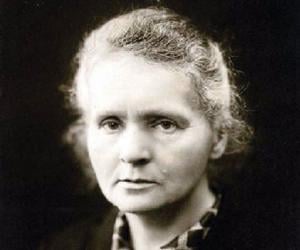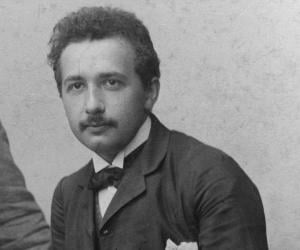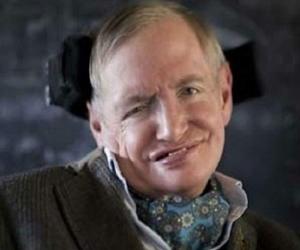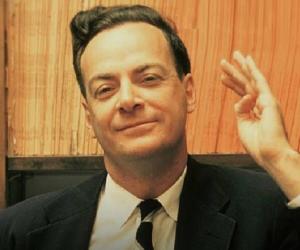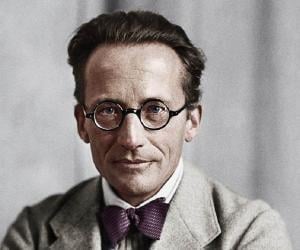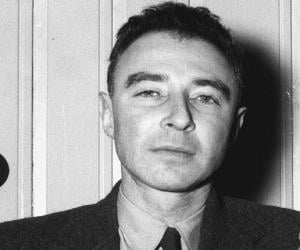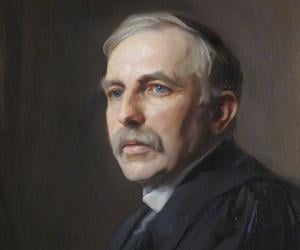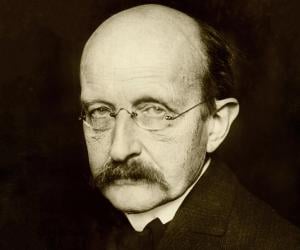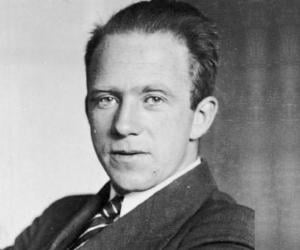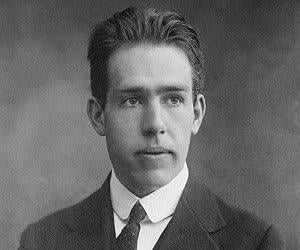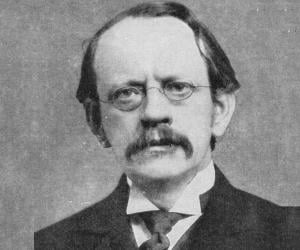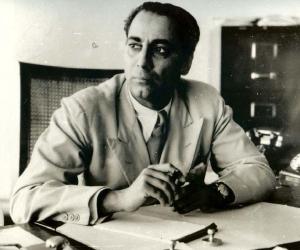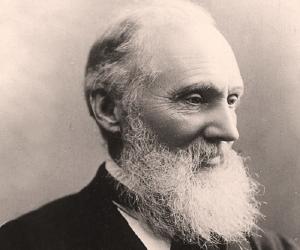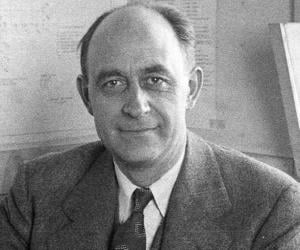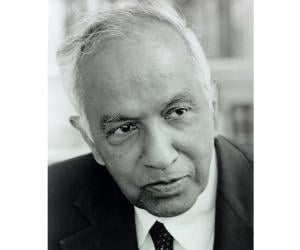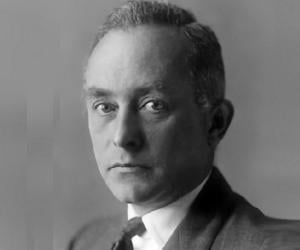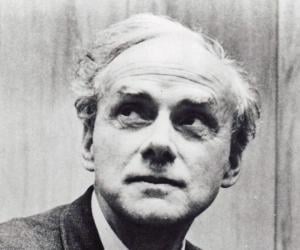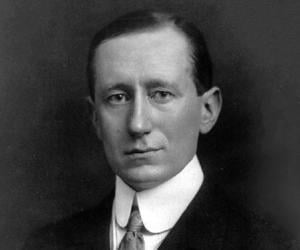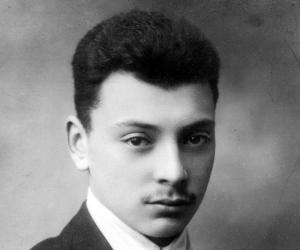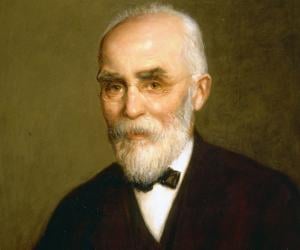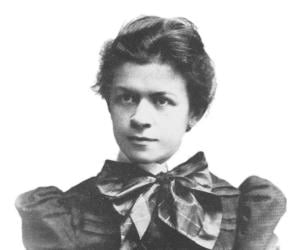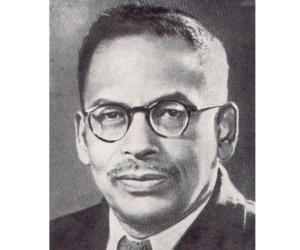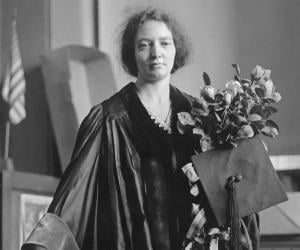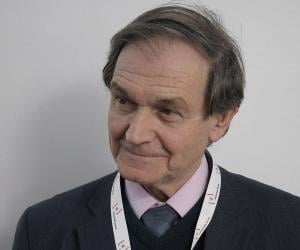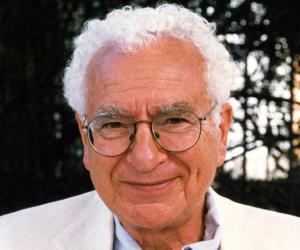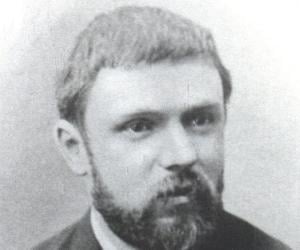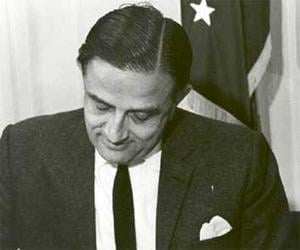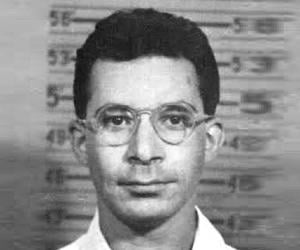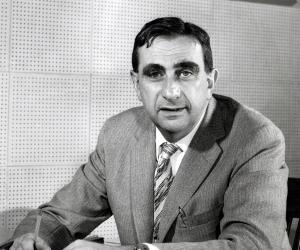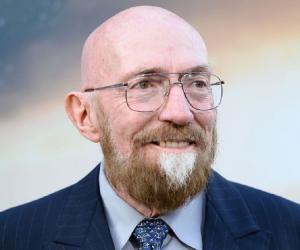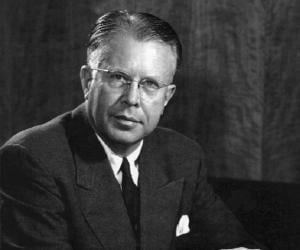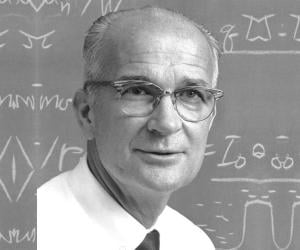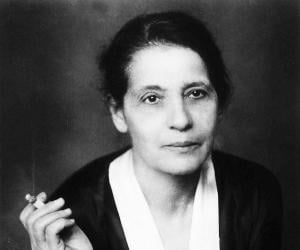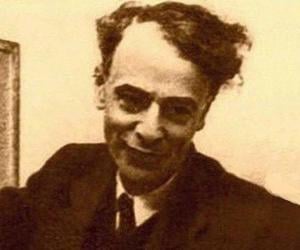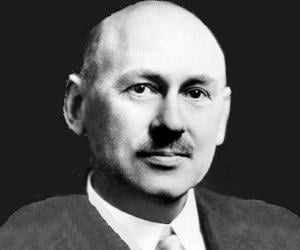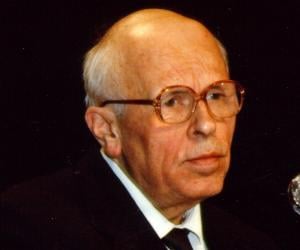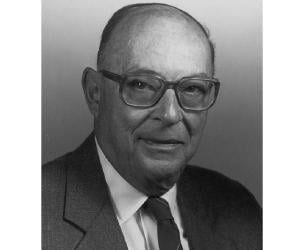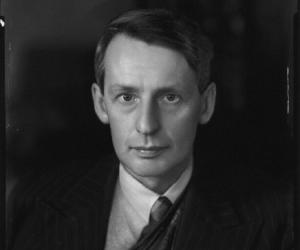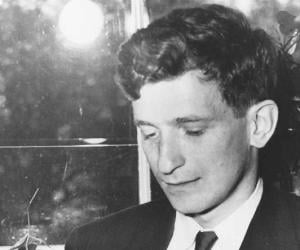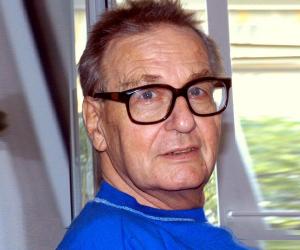Stephen Hawking was an English theoretical physicist and cosmologist, who despite being afflicted motor neurone disease that severely limited his physical abilities, was able to build a phenomenally successful career. He was the first to set out a theory of cosmology explained by a union of the general theory of relativity and quantum mechanics. Hawking was ranked 25 in the BBC's poll of the 100 Greatest Britons, in 2002.
Theoretical physicist Richard Feynman won the Nobel Prize in Physics in 1965, along with Julian Schwinger and Shin'ichirō Tomonaga, for his research on quantum electrodynamics. He also contributed to the development of the atomic bomb. Feyman made it to Physics World’s list of the 10 greatest physicists of all time.
Hailed as a brilliant scientific mind, American physicist J Robert Oppenheimer, led the Manhattan Project which resulted in the development of atomic bomb during the World War II. The bombs were dropped on the Japanese cities of Hiroshima and Nagasaki in 1945. However, Oppenheimer was in a constant conflict over the moral issue of the weapons of mass destruction and rallied against nuclear proliferation.
New Zealand physicist Ernest Rutherford is remembered as the father of nuclear physics. His discovery of radioactive half-life and of radon, and his differentiation of alpha and beta radiation, won him the Nobel Prize in Chemistry in 1908. Element 104 was named rutherfordium in his honor.
German theoretical physicist Max Planck is remembered for originating the quantum theory of physics, which earned him the 1918 Nobel Prize in Physics. He laid down concepts such as the Planck constant and the Planck postulate. The Kaiser Wilhelm Society was later renamed Max Planck Society in his honor.
J. J. Thomson was a British physicist credited with the discovery of the electron, the first subatomic particle to be discovered. He was awarded the Nobel Prize in Physics in 1906 for his work on the conduction of electricity in gases. In 1884, he was appointed Cavendish Professor of Physics at the University of Cambridge.
Padma Bhushan-winning physicist Homi Bhabha revolutionized the Indian nuclear program singlehandedly. Born into an affluent family, he was educated at Cambridge. Initially geared toward a career in mechanical engineering, he later drifted to physics, eventually contributing to the formation of TIFR. The Bhabha Atomic Research Centre is named after him.
Lord Kelvin was a British mathematical physicist and engineer. He studied at the Glasgow University and proceeded to teach there as well. Besides his academic career, he also had a career as an electric telegraph engineer and inventor. He received the Royal Society's Copley Medal in 1883. Absolute temperatures are stated in units of kelvin in his honor.
Remembered for his varied contribution to astrophysics, Subrahmanyan Chandrasekhar is perhaps best known for his work on the evolution of massive stars. Today known as Chandrasekhar limit, it contributed to final understanding of supernovas, neutron stars, and black holes. A prolific writer, he also did significant work on energy transfer by radiation in stellar atmospheres and convection on solar surface.
English theoretical physicist and Nobel laureate Paul Dirac OM FRS, counted among leading physicists of the 20th century, made fundamental contributions in the early development of quantum electrodynamics and quantum mechanics. He derived the Dirac equation while the modern theory of antimatter began with one of his papers. His book The Principles of Quantum Mechanics remains an influential monograph on the subject.
Guglielmo Marconi was an Italian electrical engineer and inventor best remembered for his work on long-distance radio transmission. Marconi, who is credited with inventing the radio, was honored with the 1909 Nobel Prize in Physics for his work in the field of wireless telegraphy. Also a businessman, Marconi founded the Wireless Telegraph & Signal Company in 1897.
Nobel Prize-winning Austrian physicist Wolfgang Pauli is remembered for his contribution to quantum physics and for laying down the Pauli principle. While he was initially married to a cabaret dancer, the marriage ended in a divorce after a year. His written works are considered classics in science.
Nobel Prize-winning Dutch physicist Hendrik Lorentz, a major figure of the Second Dutch Golden Age, is remembered for his discovery of the Zeeman effect, along with his former student Pieter Zeeman, who shared the Nobel with Lorentz. His research on electromagnetic radiation prepared ground for Einstein’s special theory of relativity.
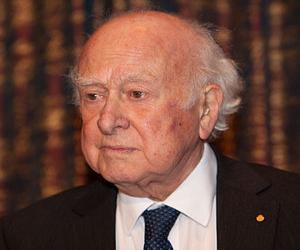
Peter Higgs is a British theoretical physicist. He studied at King's College London and was awarded a Ph.D. in 1954. He went on to have a brilliant academic career and was elected Fellow of the Royal Society (FRS) in 1983. In 2013, he shared the Nobel Prize in Physics with Belgian physicist François Englert.
Indian astrophysicist Meghnad Saha is best remembered for developing the thermal ionization equation. A grocer’s son, he relied on merit alone to excel in academics and eventually became a professor at the universities of Allahabad and Calcutta. He was also a Lok Sabha MP and a Fellow of the Royal Society.
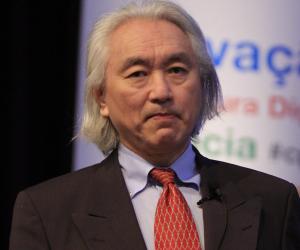
Apart from teaching at the City College of New York, theoretical physicist Michio Kaku also often pens his thoughts in blogs and has written several bestselling books, such as The God Equation. His research is focused on the string theory. He also believes in the existence of aliens.
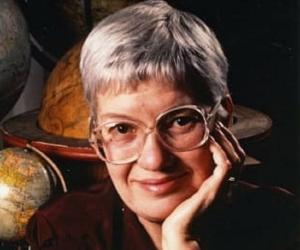
American astronomer Vera Rubin is best known for her pioneering discoveries on galaxy rotation rates, her groundbreaking work confirming the existence of dark matter and for her life-long advocacy for women in science. She studied the galactic rotation curves and provided strong evidence of the existence of dark matter. The Vera C. Rubin Observatory in Chile is named after her.
Marie Curie and Pierre Curie’s daughter, Irène Joliot-Curie, herself a brilliant scientist, won the 1935 Nobel Prize in Chemistry, along with her husband, Joliot-Curie, for discovering artificial radioactivity. She was also one of the first three female French government members. She tragically died of leukemia caused by exposure to radiation.
Roger Penrose’s contribution to the research related to the black hole and general relativity earned him the Nobel Prize in Physics in 2020. The Emeritus Rouse Ball Professor of Mathematics at Oxford, Roger is also a fellow of Wadham College, St John's College of Cambridge, and University College London.
Nobel Prize-winning American physicist Murray Gell-Mann is best remembered for his research on elementary particles. The Yale and MIT alumnus later taught at Caltech and is credited with coining the terms "quark" and "strangeness" in quantum physics. A linguistic enthusiast, he also co-established the Evolution of Human Languages program.
Padma Bhushan- and Padma Vibhushan-winning Indian scientist Vikram Sarabhai was born into the famous Sarabhai family of industrialists who were associated with the Indian Independence Movement. He made major contributions to India’s nuclear power and space research initiatives, developed textile research in India, and helped set up IIM-Ahmedabad.
Edward Teller was one of the famous "Martians,” or eminent Hungarian scientists who had migrated to the U.S. A prominent chemical engineer and nuclear physicist, he was part of the team that created the world’s first atomic bomb and also designed the first hydrogen bomb, or thermonuclear bomb.
American theoretical-physicist Kip Thorne, who is noted for his contributions in gravitational physics and astrophysics, is known for Thorne-Żytkow object, Thorne-Hawking-Preskill bet, LIGO, gravitational waves and the book Gravitation. Thorne along with Rainer Weiss and Barry C. Barish received the Nobel Prize in Physics in 2017 for their contributions to the LIGO detector and the observation of gravitational waves.

A doctorate in physics from MIT Cambridge, Ronald McNair worked on chemical lasers before joining NASA and in 1984 flew as a mission specialist on STS-41-B aboard Challenger, becoming the second African-American to do so. In January 1986, he was selected to fly on STS-51-L, but was killed along with rest of the crews when Challenger disintegrated soon after liftoff.
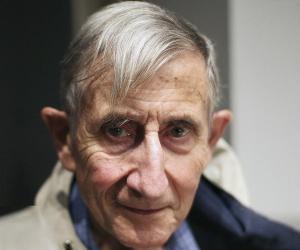
Freeman Dyson was a British-American theoretical and mathematical physicist, mathematician, and statistician. He made major contributions in the fields of quantum field theory, astrophysics, random matrices, quantum mechanics, and nuclear physics. He originated the concept that went on to be known as Dyson's transform. He received the Golden Plate Award of the American Academy of Achievement in 1986.
American physicist, inventor and Nobel laureate William Bradford Shockley Jr received the Nobel Prize in Physics with John Bardeen and Walter Brattain in 1956 for their researches on semiconductors and for discovering the transistor effect while working at the Bell Labs. He later became a proponent of eugenics while serving as a professor of electrical engineering at Stanford University.
Lise Meitner was an Austrian-Swedish physicist best remembered for her contributions that led to the discoveries of nuclear fission and the element protactinium. Nicknamed the German Marie Curie by Albert Einstein, Lise Meitner became the second woman in the world to receive a doctorate in physics in 1905. In 1997, chemical element 109 meitnerium was named in her honor.
Nobel Prize-winning Russian physicist Lev Landau is remembered for his pathbreaking research in quantum mechanics. A math prodigy, he had learned calculus at 13. He failed to receive his Nobel in person due to a near-fatal car crash which caused him injuries that eventually caused his death 6 years later.
The son of a machine shop owner, Robert H. Goddard grew up to become a pioneer of rocketry. Interested in physics and mechanics since childhood, he dreamed of space flight. He developed the world’s first rocket that ran on liquid fuel. NASA's Goddard Space Flight Center is named after him.
Andrei Sakharov was a Russian dissident and nuclear physicist best remembered for designing RDS-37, Soviet Union's first two-stage hydrogen bomb. Also an activist for peace and human rights, Andrei Sakharov was honored with the Nobel Peace Prize in 1975. The Sakharov Prize for Freedom of Thought, which is awarded by the European Parliament, is named in his honor.
American engineer, physicist and Nobel laureate John Bardeen is the only person who received the Nobel Prize in Physics twice. He shared the first Nobel with William Shockley and Walter Brattain in 1956 for inventing the transistor, and the second with Leon N Cooper and John Robert Schrieffer in 1972 for proposing the BCS theory, a microscopic theory of superconductivity.
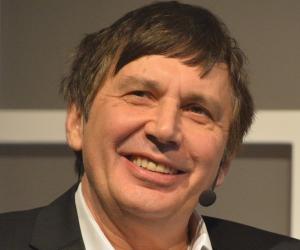
Andre Geim is a Russian-born Dutch-British physicist. He has been associated with the School of Physics and Astronomy at the University of Manchester for several years. In 2010, he was awarded the Nobel Prize in Physics jointly with Konstantin Novoselov in recognition of his work on graphene. He is also a recipient of the 2000 Ig Nobel Prize in Physics.

Better known as former U.S. president Donald Trump’s uncle, John G. Trump was an MIT physicist and engineer. Though he had initially aspired to be an architect and join his brother Fred’s real-estate business, John later concentrated on his research that led to the invention of high-voltage generators.
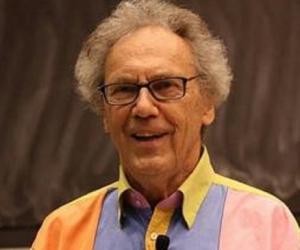
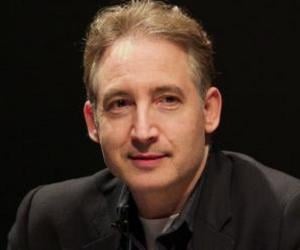
American theoretical physicist, mathematician, and string theorist Brian Greene is noted for popularising string theory through his books like The Elegant Universe, and The Fabric of the Cosmos and related PBS television specials. Greene taught as professor of physics at Cornell University, and presently serves as a professor at Columbia University. He is the co-founder and chairman of the World Science Festival.
George Paget Thomson was a British physicist best remembered for his discovery of the wave properties of the electron by electron diffraction. The son of physicist and Nobel laureate J. J. Thomson, he himself went on to receive the Nobel Prize in Physics in 1937. He spent several years of his career at Imperial College London.

Donna Strickland is a Canadian optical physicist who is considered a pioneer in the field of pulsed lasers. In recognition of her research on the practical implementation of chirped pulse amplification, she was jointly awarded the Nobel Prize in Physics in 2018, together with Gérard Mourou. She is currently a professor at the University of Waterloo in Ontario, Canada.
Swiss-American physicist and engineer Bernhard Caesar Einstein was better known as the only grandchild of Albert Einstein to have survived beyond childhood. While two of his biological brothers died in infancy, his parents adopted a girl child, too. He grew up to work on night vision and laser technology.
